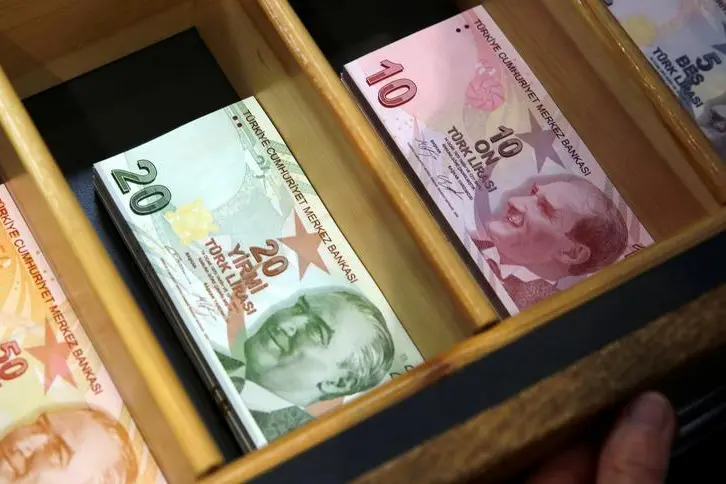PHOTO
LONDON - Turkey’s currency crisis was easy to predict. What is more surprising is how weak the global response has been. The old world financial order is badly missed.
A big mess was almost certain to arrive in a country that continually relied on short-term loans to finance a large current account deficit. That was not the only invitation to disaster. Heavy domestic borrowing denominated in foreign currencies and high inflation added to the strains. So did a government that spurned the counsel of the foreign financiers who help keep the economy afloat.
President Tayyip Erdogan was lucky to avoid serious trouble so far. Now, though, he faces a disaster. The Turkish lira has fallen 42 percent against the dollar since the beginning of May. It will take a miracle or an international rescue to avoid a domestic banking crisis.
Much has changed since 2009 when the government, then led by Prime Minister Erdogan, announced that it no longer needed advice from the International Monetary Fund. The country would “move forward without a walking stick”.
Turkey had leaned heavily on the IMF crutch over preceding decades. The country had a standby arrangement with the global lender for more than half the period between 1970 and 2009. The IMF promised support if the government kept working on economic reforms.
This time, however, the IMF is still waiting for a phone call from Ankara. The Washington-based institution has the expertise and probably the money needed to stabilise the lira, but Erdogan has cast it in the role of enemy of the Turkish people.
The antipathy fits with the president’s nationalist and authoritarian agenda, but it is also part of a distressing pattern. The traditional authority figures in global financial matters are crippled.
The IMF’s reputation has been damaged by what was widely perceived as its blind allegiance to the doctrines of free trade, free capital movements and free markets. Though the multilateral institution’s approach has softened under Christine Lagarde, managing director since 2011, Turkey’s intransigence suggests the IMF lacks its former moral authority.
Then there is the United States, which used to be a reliable source of pressure on recalcitrant governments, creditors and negotiators. As steward of the global financial system, military hegemon and the world’s largest economy, it had powerful carrots and sticks.
Not any more. President Donald Trump has added to the crisis by imposing extra tariffs in retaliation for Turkey’s imprisonment of an American citizen, the pastor Andrew Brunson. The president’s administration seems oblivious to the economic fate of a NATO ally, or to the impact of a hostile and weakened Turkey on U.S. interests in the region. The one-time guarantor of the global order has gone rogue.
That leaves the European Union. The bloc has economic clout and was the recipient of 47 percent of Turkey’s exports in 2017. European banks are the most exposed to the country’s financial woes, adding to the incentives to help clean up the mess. Moreover, Turkey is home to an estimated 3.5 million Syrian refugees, some of whom might otherwise head towards Europe.
Yet the EU hardly appears to be trying. While Erdogan is not an easy negotiating partner, he has received no public offer of help from Brussels or any other European capital.
The old world financial order was undoubtedly tired and deeply flawed. The IMF has long been sclerotic, the U.S. was not always an honest broker and the Europeans were never sufficiently united. The trio did little to restrain the reckless tendencies of the global financial system. Still, like an old car that stalled, sputtered and smoked, the arrangement was preferable to walking.
What comes next? The Turkish government promises a plan, but without substantial support from its international creditors a deep and politically challenging recession is almost inevitable. In neighbouring Greece, the sudden stop to foreign funding in 2008 led to a 27 percent drop in GDP over six years. Though the Greek current account deficit was larger than Turkey’s is today, the latter has worse problems with inflation and capital flight.
The best solution for Turkey’s problems would be a broader global financial order with new leaders and renewed institutions. That would also be good news for countries like Pakistan and South Africa that depend too much on the kindness of foreign financiers.
Sadly, no replacements are in sight. China lacks the necessary wealth, experience and global respect. Besides, Beijing is struggling to control its own banking sector.
Sometimes a crisis can concentrate minds. Perhaps the old powers will put the old jalopy together and find a halfway decent way forward for Turkey. Even if they do, the lira’s sharp decline is a strong warning. More currency crises are very likely. That is what happens in a global economy without a global authority to guide it.
On Twitter https://twitter.com/edwardhadas
- For previous columns by the author, Reuters customers can click on
- SIGN UP FOR BREAKINGVIEWS EMAIL ALERTS http://reut.rs/2dxfHO3
(Editing by Peter Thal Larsen and Karen Kwok)
© Reuters News 2018




















